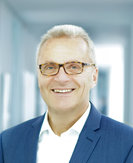AC4DC AC4DC - Adaptive Computing for Green Data Centers: Raise of energy efficiency through intelligent load balancing and infrastructure management, from the distributor to the user
Goal
As of today, in the internet and communications technology (ICT), isolated single-optimized server systems are often suspect of unused capacities and hence a high energy demand. The project AC4DC plans to develop methods to reduce this energy demand by optimizing the operation of ICT systems as a whole, including end users, office PCs, data centres, data networks and energy providers in terms of energy demand and total costs.
The holistic view of the system not only creates extensive possibilities of energy saving but also enables a load optimization in power networks, especially in smart grids.
To accomplish the project's aims, intelligent forms of management of load in data centres, infrastructure and data storage will be researched. These will be applied to single data centres as well as to a cluster of multiple data centres.
This three-step approach partially enables the parallel achievement of the project's aims. The concepts developed will then be implemented as prototypes and tested in partly isolated environments. This is then used to evaluate the energy saving potential.
The optimization will also reflect influences such as user behaviour, economic requirements and site-specific parameters. The systematic and early involvement of data centre operators assures the project's market-orientation. In addition highly-effective business models and potentials to save energy and material will be identified.
OFFIS is significantly involved in multiple work areas of the project. Analysis of existing data as well as the accomplishment of new measurements in data centres are an essential part to be able to make statements about the energy demand of servers and complete data centres. This also includes the development of new measurement technologies.
In addition new models will be developed and evaluated which allow for a proactive controlling and sharing of services across servers. These models will also take into account the cooling systems for servers and data centres.
Finally an implementation of a prototype of the system will be developed and used to prove that the results are also relevant in practical use.
Scientific Director
Daniel Schlitt, Stefan Janacek, Gunnar Schomaker; 08 / 2014
Hintemann, Ralph and Fichter, Klaus and Schlitt, Daniel; Proceedings of the 28th EnviroInfo 2014 Conference; 2014
Hoyer, Marko and Schlitt, Daniel and Schomaker, Gunnar and Schröder, Kiril and ; 009 / 2011
Schlitt, Daniel and Mayer, Christoph; 12 / 2011
Schröder, Kiril and Nebel, Wolfgang; 2012 International Conference on Energy Aware Computing; 12 / 2012
Schlitt, Daniel and Nebel, Wolfgang; 2012 International Conference on Energy Aware Computing; 12 / 2012
Daniel Schlitt, Wolfgang Nebel; Proceedings of ICT for Sustainability 2016; 08 / 2016
Janacek, Stefan and Schomaker, Gunnar and Nebel, Wolfgang; 05 / 2013
Nebel, Wolfgang and Schomaker, Gunnar and Helms, Domenik; 12 / 2013
Schröder, Kiril and Nebel, Wolfgang; SAC '13 Proceedings of the 28th Annual ACM Symposium on Applied Computing; 03 / 2013
Stefan JanacekWolfgang Nebel; Proceedings of the 28th EnviroInfo 2014 Conference, Oldenburg, Germany ; 09 / 2014
Schröder, Kiril and Nebel, Wolfgang; HotTopiCS '13: Proceedings of the 2013 international workshop on Hot topics in cloud services; 04 / 2013
Stefan JanacekDaniel SchlittGunnar Schomaker; 08 / 2014
Stefan JanacekGunnar Schomaker; Energy 2.0 Kompendium ; 11 / 2013
Daniel Schlitt, Gunnar Schomaker and Wolfgang Nebel; Energy-Efficient Data Centers, Third International Workshop, E²DC 2014, Cambridge, UK, June 10, 2014; 06 / 2014
Stefan Janacek, Wolfgang Nebel; 10 / 2015
www.borderstep.de
www.btc-ag.com
www.microsoft.com
www.rittal.de
www.uni-paderborn.de
www.wuerz.com
www.kdo.de
Duration
End: 30.04.2014

